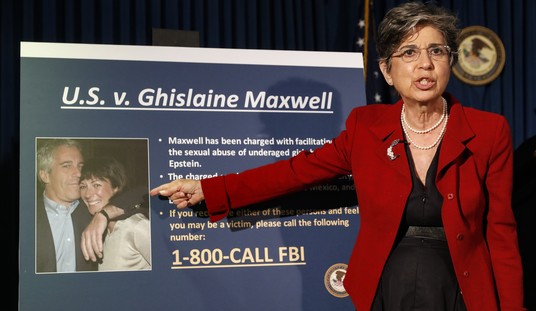The deadline was December 31st, but faced with the prospect of 50 percent or more of their new enrollees going uncovered in January due to nonpayment, some individual insurers had already begun granting grace periods. Then HHS announced that it was strongly urging (wink wink) insurers across the industry to extend their deadlines too. And now, inevitably, here comes the umbrella group America’s Health Insurance Plans to say that its members have done exactly that.
No matter how messy the White House’s mismanagement of O-Care’s rollout gets, the insurance industry has no choice now but to try to clean it up. You bought the ticket, guys. Enjoy the ride.
As a result of the change, individuals who pick plans by Dec. 23 will be considered covered as of Jan. 1 as long as they pay their first month’s premiums by Jan. 10. Previously, payment had been required by Dec. 31…
In addition to asking insurers to allow consumers more time to process payments, HHS asked insurers to treat out-of-network providers as in-network, to continue to allow individuals to refill prescriptions that had been covered under previous plans and to accept partial payments for January premiums. AHIP did not address those requests in its statement.
It’s only the deadline for payment that’s changed, not the December 23rd deadline for enrollment, but we’ll see how that goes during the next few weeks. I’m sure the White House would love to extend the enrollment deadline into January too, with coverage retroactive to January 1st, but that’s more dangerous for insurers since in theory it would allow someone to sign up for insurance after they’ve already had an expensive accident. Maybe HHS could allow for retroactive enrollment with the caveat that claims over a certain amount won’t be covered? Or maybe they’ll just shovel some “risk corridor” money at insurers to cover any heavy losses from people who sign up to pay for pricey treatment that’s already been incurred. There are bound to be good-faith cases next month of people who really did try to sign up before this month’s deadline but were thwarted by lingering problems with Healthcare.gov or by the fact that the federal data hub still isn’t working well enough to let them enroll directly with insurers as a workaround. (At least one state exchange website has performed so terribly that some locals think they should switch to Healthcare.gov because it’s … more reliable.) Once you let those people enroll retroactively, why not let others whose attempt at enrollment in December wasn’t quite as diligent enroll too? All the better to pad HHS’s sign-up numbers.
But that raises a bigger question: Why would insurers further complicate their lives by bending over backwards this way for procrastinating consumers? Sure, they’d like to have some extra revenue in January by letting latecomers sneak in before January 10th, but insurers forgo revenue all the time by sticking to preset deadlines. Is this simply a little Christmas generosity on the industry’s part? No, silly: They were threatened by the federal government.
Health industry consultant Kip Piper said HHS doesn’t have the authority to enforce what he calls these “political requests” [for deadline extensions]. But HHS said it will consider insurers’ cooperation now when it decides which ones can participate on the insurance exchanges next year.
“They are simultaneously asking insurers to assume the cost and risk of non-payment, taking public credit for it, and threatening insurers with loss of business if they don’t comply,” said Piper, a former government and insurance industry official.
Avik Roy made the same point a few days ago, pointing to the “menacing language” used by HHS in its new regulations urging insurers to comply with its extension “requests.” That should be illegal, says Roy, but is there any insurer bold enough to sue the feds over it, knowing that they might retaliate by booting them from the exchanges just as millions of new consumers are being forced onto them? This is why you don’t do business with the mafia: When they “ask” you for something, there’s no way to say no.
By the way, via Guy Benson, Ezra Klein’s Wonkblog has gone from arguing that the enrollment numbers are far less important than the demographic make-up of the exchange risk pools to arguing that it’s less important than you think that the risk pools contain lots of “young invincibles.” That’s the best evidence yet that HHS is lagging badly in signing up young adults.








Join the conversation as a VIP Member